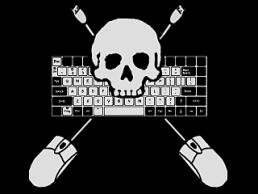Pirates of the Cyberean
Submitted by Alex de Coning on Tue, 2012-04-03 15:39

Today’s blog post is inspired by a Matthew Inman cartoon that featured on The Oatmeal not too long ago; http://theoatmeal.com/comics/game_of_thrones.
The cartoon is about the trials and tribulations of a “law-abiding citizen”, trying to watch an episode of the popular series, Game of Thrones, and how trying to do so legally proved to be quite a hassle.
In essence, the issue of Piracy is an empirical one – what affect does piracy have on the global economy? I enjoyed the critical insights from Arthur Devany, professor of economics at the University of California and David Walls, professor of economics at the University of Calgary; they note that estimating the “effect of movie piracy on Box–Office revenue [is] notoriously difficult” (they even have a scientific name for it: the “Nobody knows principle”. It’s difficult to calculate, because piracy affects the supply of films, as well as the demand. Which makes sense – if I enjoyed a pirated song or movie, I might be inclined to buy the album or the DVD. Every illegal download doesn’t necessarily mean a lost sale. Conversely, do you know people who walk into Look & Listen and buy a random series they’ve never seen or heard of? I don’t.
Following a very interesting Ted Talk presented by Rob Reid on the $8-billion iPod (Video 5:11 http://www.ted.com/talks/rob_reid_the_8_billion_ipod.html), it’s clear that the math has proven difficult. One cannot accurately predict the impact that piracy has on the entertainment industry, though past predictions prove to be quite farcical, according to (and substantiated by) Reid. Understandably, corporates and industry are quite vocal about the issue; any shareholder that experiences an impact on their dividend payments or diminished profit share would be.
But looking at the big picture, and not just the bank balances of a select group of individuals, there have been positive influences to the global economy due to piracy. I especially like the quote from current Romanian president, Traian B?sescu who said, “Piracy set off the development of the software industry in Romania.” Surprisingly, a Government Accountability Office (USA, 2010) report, entitled, “Observations on Efforts to Quantify the Economic Effects of Counterfeit and Pirated Goods” noted that there are “positive economic effects [from] counterfeiting and piracy.” The report goes on to say, “…experts disagree over the potential impacts of piracy on jobs. ‘Any effects are unclear’ because job loss in one sector may result in a ‘rise in other industries.’” Think about the multi-billion dollar security industry sparked from video game piracy alone.
Piracy has been around longer than the Internet. Think of the fake luxury goods production in China. Premium brands such as Louis Vuitton, Prada and Burberry have their high-quality replicas that sell for less than a fraction of the cost of the original. The Chinese government tolerates this, precisely due to the vast amount of jobs the industry has created.
There is a clear dichotomy when referring to pirates (in my mind, at least); the first kind of pirate is the individual depicted in the cartoon – someone in need of some entertainment, whether software, music, series or film, purely for personal consumption. The second is the person (more likely the cartel) that profits from the gross over-production of pirated entertainment or counterfeited goods. Above and beyond the obvious fundamental differences between these two subsets, it’s also pertinent to note that 99% of the home-based entertainment pirates don’t spend money on weapons to wage war on the police or armed forces.
It seems that our global village is split in twain when it comes to the issue of piracy. We have a conscionable few that create content (whether it’s literature, film, music, software or video games) in the hopes that it can be enjoyed by the masses, and they give it away for free (or attached a very low price to the product). Then there is the other camp driven by the bottom-line; big industry and lobbyists who have managed to cajole governments to apply hefty fines to perpetrators. I’m reminded of Dr Conrad Murray whose negligence lead to the death of beloved pop icon, Michael Jackson. The good doctor was sentenced to four years in jail – one year less than someone in possession of an illegally downloaded Michael Jackson song would receive.
But is piracy good or bad? We’ve established that it may just have a positive influence on the global economy, despite the nature of the beast. As an appreciator of the arts, let me answer the question thusly: November 2009, Zombieland was named the number one most downloaded movie of all time. It cost the studio an estimated $23,600,000 (This includes building sets, paying actors, overtime, film distribution, catering – everything). Zombieland raked in an amazing $24,700,000 in its opening weekend alone, and by the conclusion of its runtime on the US circuit, it made a whopping $75,590,000. According to Rhett Rheese, author of the acclaimed horror comedy, a sequel is a “questionable endeavour” – studios were way too upset about the money lost on the first one to make a second one. Money lost? But the studio made every red cent back in the first two days of its release, and more than trebled their earnings in the following weeks (let’s forget the merchandising and other monetary spin-offs), I ask again, money lost?
While I am not necessarily pro (or con) piracy, I did find that there is one, immutable truth; it is impossible to eradicate piracy. But then again, why would you want to?
- Login to post comments


















